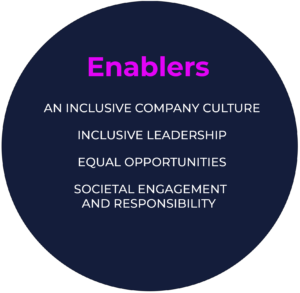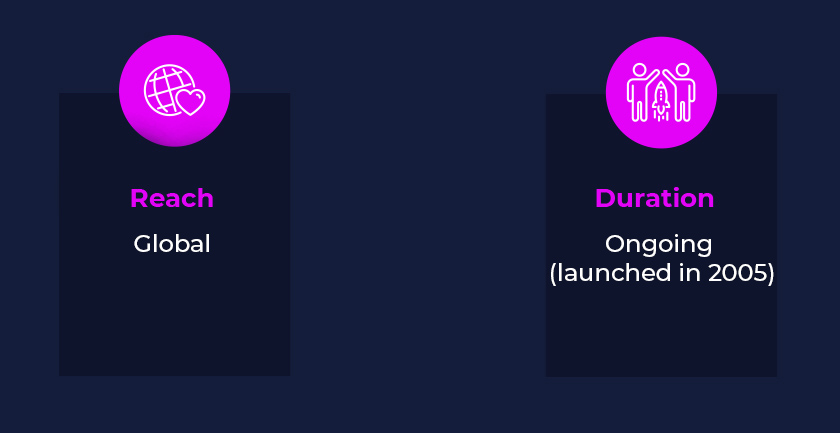

Developing policies and practices to ensure transgender inclusion
What did you want to achieve?
According to Stonewall’s Global Guide ‘Trans Inclusion in the Workplace’: ‘Unique challenges exist for transgender employees in workplaces throughout the world. These range from a lack of awareness and inclusive recruitment processes (…) to inadequate support for the transition and a failure to put processes and policies in place to prevent discrimination at work’. In 2005, SAP supported the first colleagues to transition within the company. Since then, the company has been developing policies and practices to ensure transgender inclusion.

What did you do?
In 2008, SAP developed the Global Gender Transition Guidelines as a cooperation between the SAP Global Diversity & Inclusion Office, SAP Global People Compliance Office, SAP Health, Safety & Well-Being and Pride@SAP, the LGBTIQ+ and ally employee network. These guidelines are regularly updated and assist trans employees, their managers, colleagues and additional business partners such as HR through the gender transition process.
Some of the topics covered include references to notification of gender transition, appearance standards, restroom access and health facilities, right to privacy and confidentiality, name change and pronoun use, leave and medical benefits, as well as an FAQ section and additional external resources for further enablement.
Additionally, several SAP Global Policies include explicit reference to transgender people like the Non-Discrimination Policy, and the Supplier Code of Conduct. The SAP Writing Style guidelines cover the use of gender-neutral language. The transgender community is also addressed in several SAP Inclusive Mindset Challenges, available for all employees globally.
What are the results so far?
As of 2023, SAP has been using the Gender Transition Guidelines to support colleagues in countries such as Germany, the U.S., Brazil, the Philippines, and Australia. SAP software has also been leveraged with relevant solution functionality like expanding gender options including non-binary ones, the possibility to use preferred names and to update the employee’s own pronouns.
In the U.S., Canada and some Latin American countries, SAP also offers enhanced, trans-inclusive healthcare benefits. Pride@SAP leaders have launched dedicated transgender employment programmes in Brazil and Argentina. SAP has been recognised as a top global employer for LGBT inclusion by Human Rights Campaign, Pride Connection, Germany’s DAX LGBT+ Index and other organisations.
What have you learned?
We have learned the importance of internal executive sponsorship and working with external organisations to deliver team enablement workshops in support of transitioning colleagues. SAP external focus is to also advocate to eradicate transgender legal discrimination. SAP has done so by being one of the first 15 companies to pledge their support to the United Nations’ Global LGBTI Standards of Conduct for Businesses and by recently signing the Human Rights Campaign ‘National Business Statement On Anti-LGBTQ+ State Legislation’ and an open letter by Out & Equal in support of LGBTQ+ diversity and inclusion in Brazil.
SAP’s Chief Diversity & Inclusion Officer, Supriya Jha recently interviewed an employee, Robyn Arro where Robyn shared her experiences of transitioning and the importance of being her authentic self at work and how SAP provides resources to support LGBTQ+ employees.







